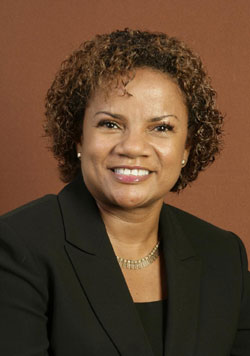
 |
Job CategoriesArticles |
Mediating conflicts now a growing organisational trend
Amitabh Sharma
Features Coordinator Building a vibrant organisation begins with a well coordinated and a highly motivated team. But as humans interact at different levels, conflicts often arise. If not dealt with properly these can hamper the smooth functioning of any company. In addition, today's global workspace can create enormous pressure to perform optimally. These too can impact any team's machinery. 
Here is where the role of a mediator comes to play, it is their job to mediate in team building, provide one on one counselling for stress or time management. "We have a multifaceted role to play," said Rosemarie Voordouw, director - employee consultations and ombuds services, Scotiabank, "we act as go between for staff members and their supervisors or peers in any situation," she added. Voordouw explained the her team can be called upon to resolve unrest or turmoil within any team or provide family counselling to staff members, be it official or personal matters. What is employee ombuds services? "The Employee Ombuds office seeks to educate staff and team members that conflict can be resolved easily," said Voordouw. "There is always another way to address an issue without leaving it to fester." This unit operates as part of the organisation, seeks to look objectively at issues, "we have to balance perceptions and look at both sides of every story before working with the parties to come to an agreement," said the head of unit. She explained that the job as a mediator is very rewarding as it gives great satisfaction to see the growth in individuals and teams as people tackle challenges and surmount them. "I am a firm believer that happier people deliver a better product," she said, "people who know how to manage stress will function better as they find ways to manage their job functions." According to Voordouw effectively addressing conflicts significantly reduces the loss of productive time, which is a problem at many workplaces. "If people spend time avoiding interaction with each other and create barriers to communication, this gets in the way of work," she explained. A growing field Ombuds Services is an emerging area with many corporations seeing the benefits of having trained counsellors on staff. Although in its nascent stage, the concept has been encouraged by international agencies such as the United Nations. There is a growing trend in facilitating in-house dispute mediation. In corporations where such unit exists, improved staff productivity, increased profits, decreased absenteeism and higher staff engagement have been realised. Training Those with background in psychology can look at ombuds as a career option. There are opportunities for psychologists as their training adds value to their ability to perform in this role. Voordouw said that incumbents can look at pursuing industrial psychology, as an emerging area. Persons in this field focus on human behaviours in the world of work and team dynamics, she said, and not necessarily on conflict resolution. The job profile will entail to provide services in group training and communication, stress management and other similar areas. It is an advantage to do an entry-level one-year psychology course, "down the line you can advance to an undergraduate degree or a master in counselling psychology," Voordouw said. According to her, it is important to have training as a mediator, "you can improve your entry level psychology training to undertake graduate level courses." As one advances, one has an option to pursue a PhD. "This will be very a good strategic move as you improve your qualifications and make yourself more marketable," she said. Traits Apart from the academic qualifications, an individual needs strong personal characteristics. "You should be able to listen well, be objective, understand human behaviour and have the ability to keep the information confidential," said Voordouw. Persons contemplating a career as an ombud should possess some key attributes, which include vibrant personality, an outgoing disposition, warmth and friendliness. These personal characteristics complement professional training. Future Larger organisations continue to see the value in having ombuds specialists as part of their team. There is also the potential for persons to train and offer consultancy to smaller organisations that may not be able to employ persons full-time. Voordouw advises future professionals to be focused. "Once you make up your mind you can do anything," she said. She believes that everyone is a product of their compiled experiences which contributes to become a total professional, "continue to pursue excellence in all things and you will succeed," she advised. amitabh.sharma@gleanerjm.com |
|
© Copyright Jamaica Gleaner
|